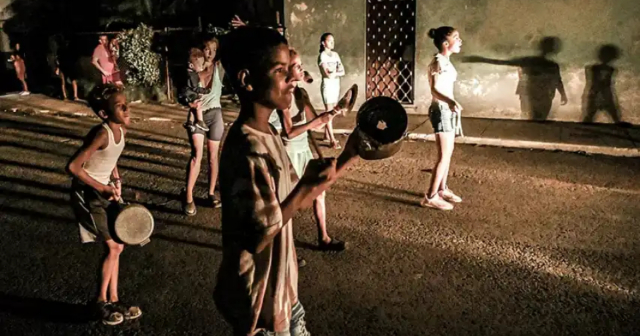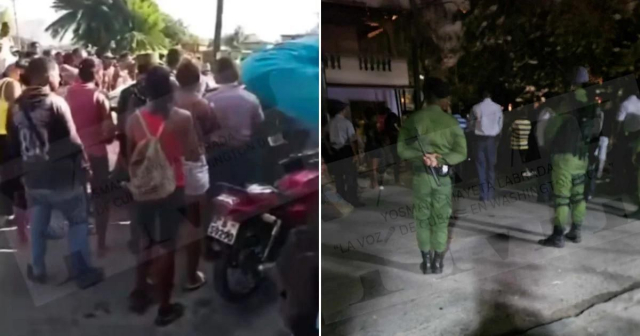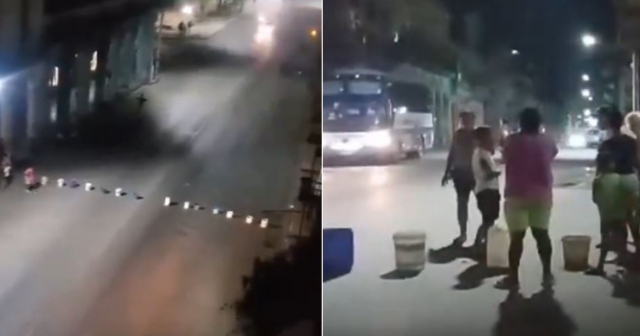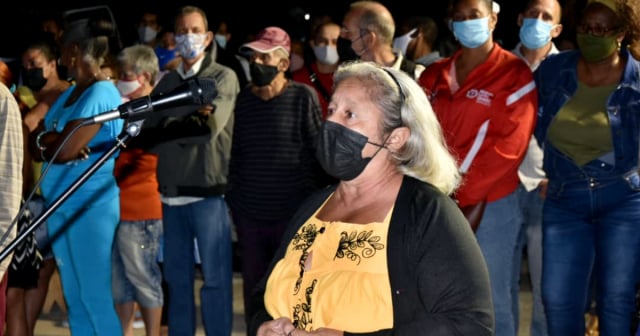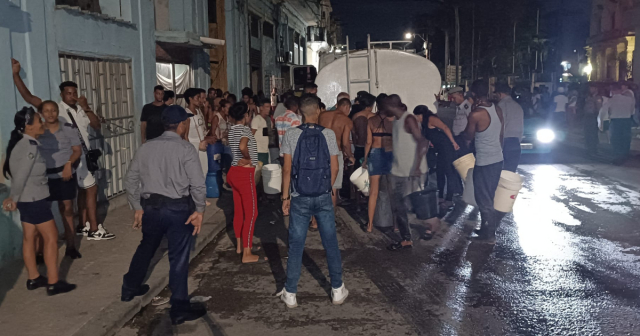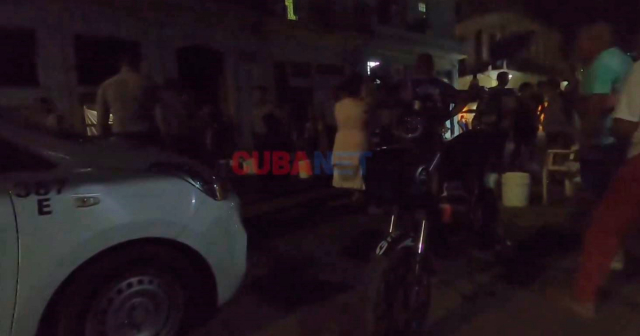Dozens of Cuban travelers demanded this Monday that the low-cost airline Wingo allow them to take a flight to Bogotá, Colombia, during a protest at the José Martí International Airport in Havana.
"We want to fly," demanded in unison the passengers before officials from the Colombian airline and the airport, as shown in videos shared on social media by those affected by Wingo's decision to require "visitor visa" for Cubans to make a stopover in the South American country.
The police dispersed the demonstration at the airport terminal on Monday morning, Martí Noticias confirmed; meanwhile, several travelers headed to the Colombian consulate to demand an explanation.
The journalist Mario Pentón posted a video on the social network X showing the eviction of protesters by MININT and the Police.
"In a normal country, the authorities would defend their citizens," the reporter stated. "In Cuba, the oldest dictatorship in the Western Hemisphere, the repressive forces do not even accept the rightful claim of those who have lost everything to buy tickets and today they are not allowed to fly. And then they say it's not about politics... Everything is about politics in that country."

Wingo's measure left thousands of passengers stranded last week, while the Colombian Embassy stated in a press release that Cuban citizens do not require a visa for a layover in the country.
The airline explained in a note posted on Facebook that, "due to the fact that Wingo operates only point-to-point flights, and does not offer connections, it requires that Cuban passengers present a Visitor Visa at the time of boarding their flight. This document must be issued by the Colombian Consulate in Cuba."
The Colombian company also stated that it is important for the passenger to present a confirmed return ticket to the country issued by Wingo.
However, the Consulate of Colombia in Havana clarified that a transit visa is not required for layovers of less than 24 hours.
The majority of Cubans who bought tickets to Wingo bound for Colombia had planned to continue their journey to Nicaragua, in order to travel through Central America until reaching the border between Mexico and the United States, where more than 600,000 Cubans have sought asylum in the last three years.
Thousands of residents in Cuba planning to reach the southern border of the United States use the route Havana-Bogotá, Bogotá-San Salvador, and San Salvador-Managua to start the migration journey.
Last Thursday, several people were evicted from the José Martí International Airport in Havana while demanding explanations from Wingo regarding the announcement that, starting this July 8, Cuban travelers planning to fly to Bogotá would be required to obtain a transit visa.
No airline representative assisted them; however, they were threatened and forced by Cuban military personnel to leave the place.
The affected individuals told Pentón that a lieutenant colonel threatened to have them arrested. "The airline did not respond, no one came out to provide any answers. We don't know if we are heading to the embassy. Black berets entered, police officers entered, and they kicked us out," they said.
A group of Cubans affected by the sudden cancellations of Wingo showed up on Friday at the Colombian Embassy in Havana to demand explanations.
According to the claimants' testimonies, the Colombian ambassador then assured that lawsuits had already been filed against the airline and that it would take appropriate measures to solve the problem. However, he asked the affected individuals to be patient while waiting for concrete responses.
A woman who was interviewed by officials at the diplomatic headquarters said that the ambassador showed her the complaints filed against Wingo two weeks ago and confirmed that Colombia does not require a transit visa as the airline claims.
However, the affected individuals considered it to be a fallacy and real solutions have not been offered.
Regarding the information provided by the embassy, a woman stated: "To begin with, those are lengthy procedures, everything: refunds, claims, there are no immediate responses. For those who missed the flight, there is no time left, neither for those traveling in July... The option is to go with another airline... An airline that does whatever it wants and officials who are 'demanding'. This seems like a soap opera. It all sounds like lies."
Another traveler was decisive: "The embassy did not reach an agreement yesterday, otherwise we could already fly, that simple. That brochure is to clean up the embassy," while another of those affected stated: "God willing and may He allow me to be wrong. But there is no clarity with the solution, the truth."
This incident occurred just a few days after the airline Avianca cancelled its flights from Havana to Bogota, leaving many Cubans stranded, who had sold their belongings to embark on the migratory journey.
In the midst of the worst migration crisis in the country's history, Cubans do not have avenues to protest, demand, or request the refund of their tickets from airlines or travel agencies. Instead of supporting their claims, the regime authorities have responded with repression.
What do you think?
COMMENTFiled under:

